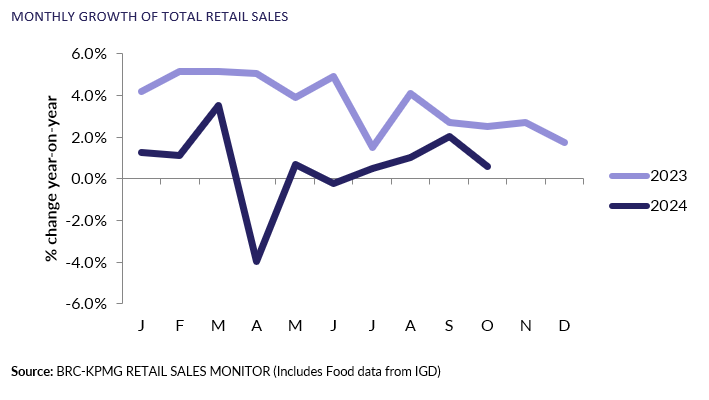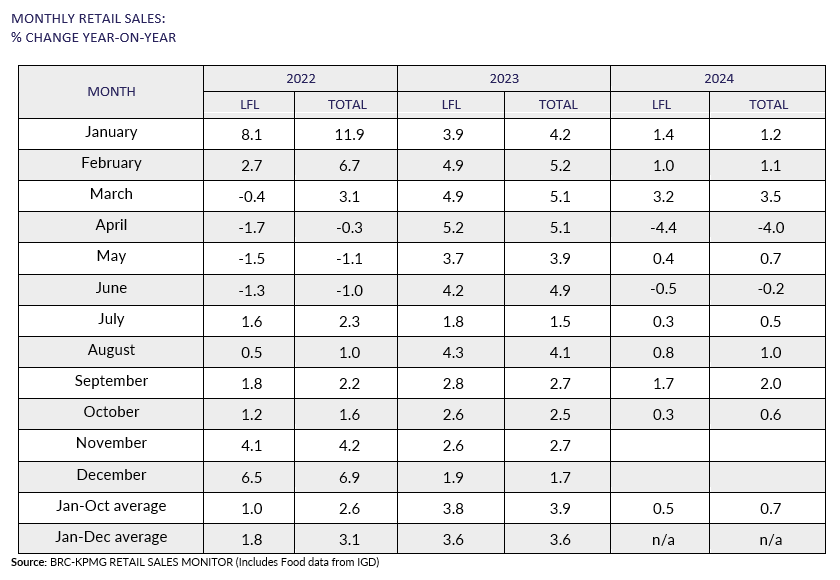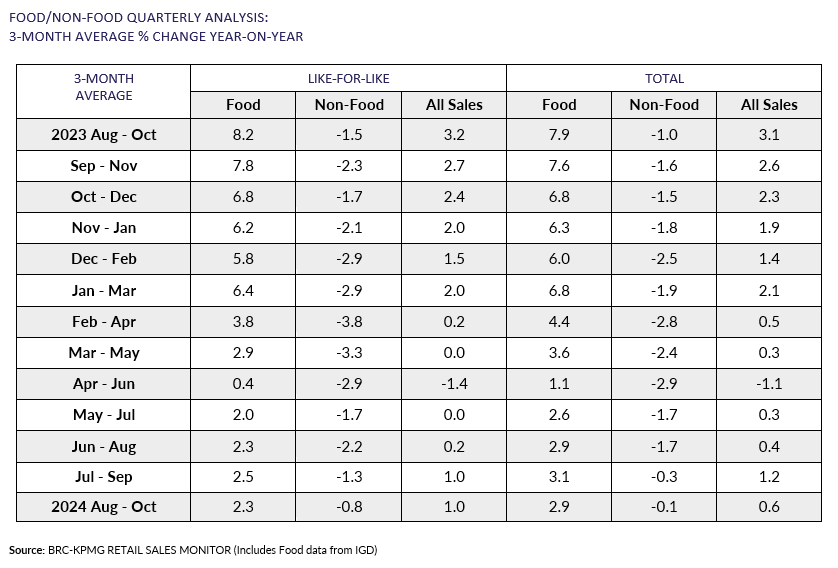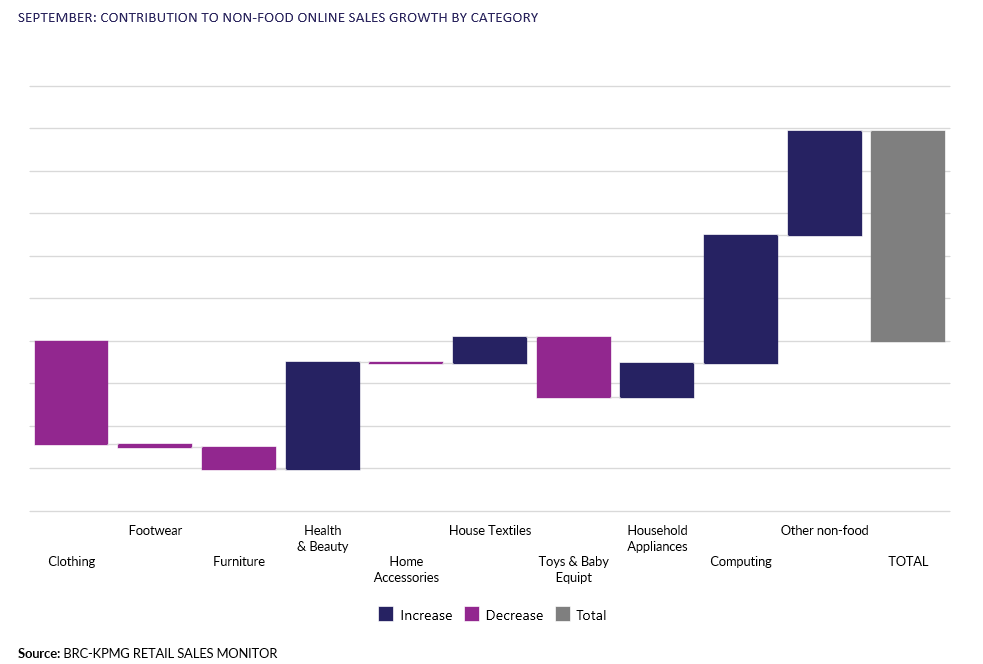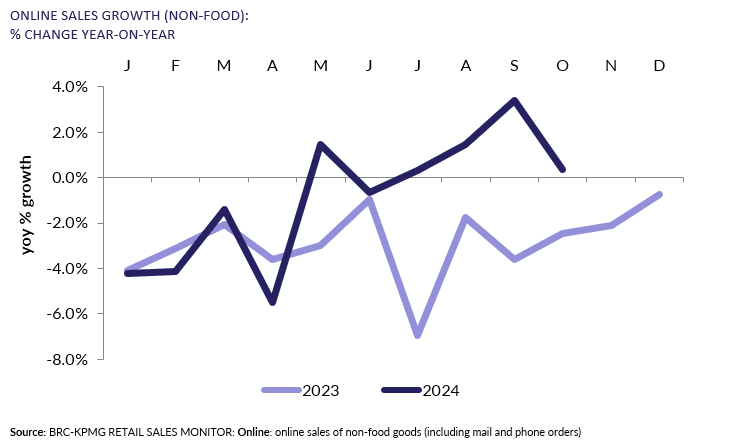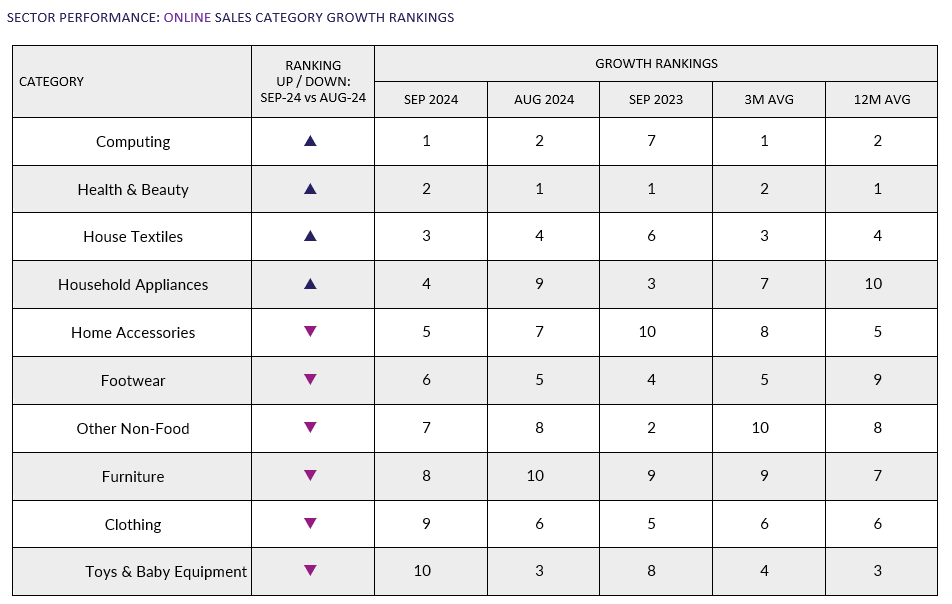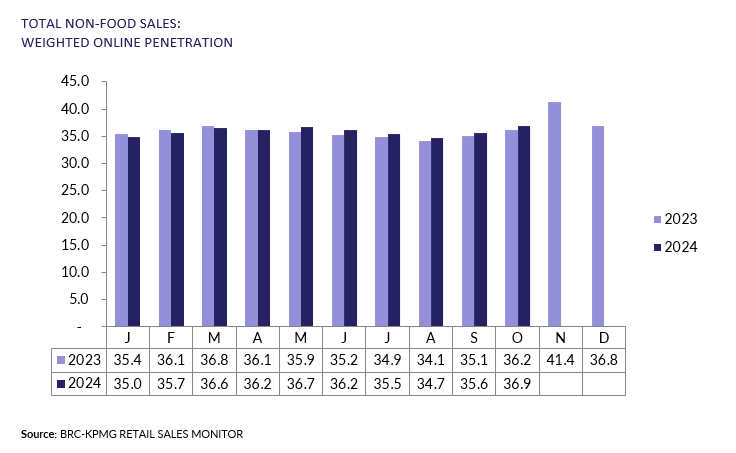Covering the four weeks 29 September – 27 October
2024
-
UK Total retail sales
increased by 0.6% year on year in October, against a growth of
2.6% in October 2023. This was below the 3-month average growth
of 1.3% and the 12-month average growth of 1.0%.
-
Food sales increased 2.9% year on year over
the three months to October, against a growth of 7.9% in
October 2023. This is below the 12-month average growth of
4.1%. For the month of Oct, Food was in growth
year-on-year.
-
Non-Food sales decreased 0.1% year on year
over the three-months to October, against a decline of 1.0% in
October 2023. This is above the 12-month average decline of
1.6%. For the month of October, Non-Food was in decline
year-on-year.
-
In-store Non-Food sales over the three months
to October decreased 1.2% year on year, against a decrease of
0.1% in October 2023. This is above the 12-month average
decline of 2.0%.
-
Online Non-Food sales increased by 0.4% year
on year in October, against an average decline of 2.5% in
October 2023. This was below the 3-month average increase of
1.9% and above the 12-month average decline of 0.9%.
- The online penetration rate (the proportion
of Non-Food items bought online) increased to 36.9% in October
from 36.2% in October 2023. This was below the 12-month average
of 36.4%.
Helen Dickinson OBE, Chief Executive
of the British Retail Consortium, said:
“After a good start to Autumn, October's sales growth was
disappointing. This was part driven by half term falling a week
later this year, depressing the October figures, and November
sales will likely see more of a boost. Uncertainty during the
run-up to the Budget, coupled with rising energy bills, also
spooked some consumers. Fashion sales took the biggest hit as the
mild weather delayed winter purchases. Health and beauty sales
remained buoyant, with beauty advent calendars flying off the
shelves.
“After a painful Budget for retailers, the hope is it will be
less painful for households in the immediate term and consumer
appetite will pick up in time for the Black Friday sales and
festive season. Retailers must now grapple with over £5bn of new
costs announced by the Chancellor, including in Employer National
Insurance, Business Rates and the uplift in the National Living
Wage. Managing this will hold back investment and growth in the
short term, while further squeezing already-low margins and
risking inflation.”
Linda Ellett, UK Head of Consumer, Retail & Leisure,
KPMG, said:
“While October's growth didn't continue at the levels seen for
the retail sector in September, retailers will feel that there is
mitigation and that they can pick up the pace again in November.
"Speculation about the impact of the Budget, a holding back of
demand until Black Friday promotions, and a later half term break
all impacted retail sales data over the last month.
“With clarity now provided by the Budget and many households
escaping paying increased tax from their wages, retailers will be
hoping for an upturn in consumer confidence and spending. Any
positivity from retailers though will of course be dampened given
the increased employment costs that they face.
“The promotional weeks around Black Friday will be the first real
test of post-Budget consumer sentiment, with retailers looking to
electronics promotions and new AI-linked products to build on the
computing and mobile phone sales growth that has been one of the
better areas of sales performance in recent months.”
